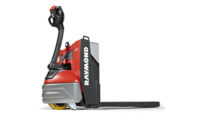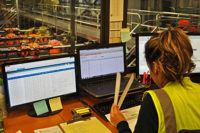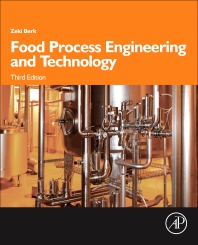Allan Brothers boosts operation effectiveness with lithium-ion technology
The benefits of using lithium-ion were apparent soon after the Allan Brothers’ fleet of electric lift trucks were equipped with li-ion batteries.

Allan Brothers Inc. continues to grow.
That’s why in 2018, the Naches, Wash.-based vertically integrated fruit company prepared to install a new state-of-the-art fruit packing line, what is said to be the biggest in the world. However, management realized that the costs associated with the lead acid battery-powered electric lift trucks in the operation’s fleet were adding up.
Time spent on changing the batteries during shifts was costing $56,000 a year and another $7,600 a year in watering maintenance costs.
And, the expansion required a new battery room, which would cost another $440,000.
Allan Brothers found itself in need of new battery technology solution.
All of these costs were cut by switching from traditional lead acid to lithium batteries by OneCharge Lithium Batteries, Irvine, Calif. By equipping its 30 lift trucks with OneCharge li-ion batteries, Allan Brothers saved on both the ongoing maintenance costs and the investment needed for expansion.
Allan Brothers manages its own farm acreage, growing apples, cherries and wine grapes. In diversifying its business portfolio, the company purchased the Sagemoor Vineyards, Pasco, Wash.
The genesis of the operation was when the Allan family started planting around Naches, 20 row crops were converted to cherry orchards, growing to eventually include around 3,500 tree fruit and wine grape acres. The operation grows their own fruit, packages and ships it along with third-party fruit to locations across the United States, Canada, Mexico and other countries.
The business also boasts 600 full-time employees, and 2,500 workers during peak harvest season. Its packing operation is situated on 30 acres in Naches, and it completed a 300,000-square-foot building expansion.
The challenge
In 2018, the company installed a new apple packing line, which featured cutting-edge technology. At the same time as this expansion, the business was deciding on the next lease term for its lift trucks.
But, the company’s growth meant an unexpected demand for new battery space to accommodate a fleet of lift trucks powered by lead acid batteries, a cost expected to amount to $440,000.
Now with 30 trucks covering two shifts and each truck requiring a change of battery per shift, management figured maintenance was racking up 750 minutes of downtime daily. This was costing the business up to $56,000 a year.
And, the weekly preventive maintenance the batteries required in the form of watering was estimated to cost another $7,800 a year.
The solution
Management looked into the available options and zeroed in on the efficiency and quality that li-ion batteries could provide.
Compared to the costs associated with lead acid batteries, Allan Brothers realized how much could be gained by opting for lithium-ion batteries, which would also add to the physical space for battery room.
Added to this was the benefit of lower costs from employees not working with hazardous lead acid batteries and safer conditions for the workers and the company’s food product lines.
The results
The benefits of using lithium-ion were apparent soon after the Allan Brothers’ fleet of electric lift trucks were equipped with li-ion batteries.
Batteries plugged in overnight were completely charged by the start of a new shift at 3 a.m. Quick hit opportunity charging was used during 15-minute breaks and 30-minute lunch breaks to increase efficiency and function of the batteries, thus eliminating the costs of downtime during battery charging.
Also gone were the dangers associated with battery maintenance that had previously been a concern.
Furthermore, there had not been any major accidents involving personnel changing the batteries, but the potential risks the procedure presented caused frequent concern. Lead acid batteries present risks surrounding spills and possible toxic fumes from the equipment require additional ventilation.
The crane used for battery changing at Allan Brothers was used by all truck drivers resulting in wear and tear and possible liabilities.
The reduced health risks in an operation using lithium-ion meant lower insurance rates for all 30 truck operators, totaling $6,000 in savings per year.
And, doing away with this concern ensured better conditions for the food products in the handling process by eliminating hazardous materials in the food packing facility, including the possibility of fumes or acid spills from the previous batteries.
Allan Brothers’ management also appreciated the power of li-ion, as the batteries continued to operate at close to 100% of the original capacity throughout shifts. By comparison, the company’s lead acid batteries gradually decreased in power, slowing down by at least 20% over time and dragging down truck performance at the same time.
Along with the increased power capacity immediately realized, Allan Brothers expect longer life of their batteries, as lithium-ion batteries can run for over 3,000 cycles, compared to an average of 1,500 for lead acid.
Management sees potential for savings in the future as there is a good chance with the additional cycles expected that the company’s OneCharge li-ion batteries will outlast the current 5-year lease term for its trucks.
Allan Brothers’ management is eyeing the advantageous possibilities of prolonging leases with existing trucks or leasing new trucks without having to purchase new batteries. And, when new leases are signed, the company anticipates reduced prices as damage to the trucks from daily battery changes and corrosive acid spills are no longer a factor.
Advanced li-ion technology
Allan Brothers found a solution to the mounting expenses associated with lead acid battery-powered electric lift trucks through the use of OneCharge lithium-ion batteries.
OneCharge general estimates are that operations will save between 20-40% on battery costs within two years of investing in li-ion.
To date, Allan Brothers has saved $56,000 annually in maintenance, namely time related to charging lead acid batteries; $7,800 annually in preventative maintenance, namely time related to watering lead acid batteries; and $440,000 investment needed in battery room for storage in an expanded facility.
OneCharge’s lithium-ion batteries offered a solution to a company in need, providing immediate savings to a business expansion, avoiding ongoing expenses and setting up the business to continue economizing in the future.
Looking for a reprint of this article?
From high-res PDFs to custom plaques, order your copy today!







